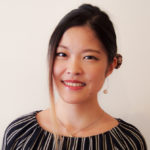
2020
Kazuko Fukuda
- Age: 28
- | She/her/hers
Region:
Country of Origin:
Country of Residence:
Expertise Areas:
I really believe what we have to blame is this societal neglect of girls, not the girls themselves. This is where my motivation comes from.
- Kazuko Fukuda
Bio
Ms. Kazuko is an SRHR activist in Japan as the founder of a grass-roots SRHR advocacy movement called #Nandenaino project, which means “Why don’t we have?”, and co-chair of the Citizens Initiative for Pharmaceutical Access to Emergency Contraception (CIPATEC). Both advocate for SRHR, especially access to contraceptives, at the national level through awareness-raising, research, petitions, and lobbying. As one of the official translators of the revised version of “International Technical Guidance on Sexuality Education” (UNFPA, 2018) into Japanese, she has delivered CSE at the University of Tokyo as a lecturer since fiscal year 2021. She has a Master of Public Health from the University of Gothenburg in Sweden and is a member of the World Association for Sexual Health Youth Initiative Committee. She currently establishes trainings for SRHR professionals to be youth-friendly as a program manager at a Japanese NGO after working at UNFPA Rwanda as a program analyst. As the deputy representative of FIFTYS PROJECT, she encourages young feminists to become politicians and election volunteers. She is the co-chair of W7 (Women’s7) Japan 2023, which is the G7’s official engagement group of feminist civil society. She has been selected as an SRHR young leader by SheDecides and Women Deliver.
What ignited your pursuit for gender equality?
I studied in Sweden as an exchange student for one year starting in 2016, and that was when I found SRHR is not protected in Japan, especially for young girls. For example, in Japan, most modern contraceptives, including contraceptive implants, rings, patches, and injections, are not approved, and no health insurance covers them. The only available contraceptive option for females is the contraceptive pill, which costs $20 per month, and the IUD or IUS, which costs $1000. Furthermore, no emergency contraceptive pill is subsidized, and you need a doctor's prescription at a cost of between $50-$150, while there is no abortion pill and surgical abortion can cost $1000–3500 only with consent from their spouses. Also, we have no place where young people can talk to professionals about physical, mental, and sexual health for free in a respectful environment. Under these conditions, one-third of pregnant girls drop out of school, and we hear almost every month that young women delivered babies in the bathroom by themselves, and the babies died, resulting in the women being arrested. I really believe what we have to blame is this societal neglect of girls, not the girls themselves. This is where my motivation comes from.
Please share your biggest wins as an advocate for gender equality.
On March 3, 2021, Mr. Yoshiro Mori, the chairman of the Tokyo 2020 Organizing Committee and the former prime minister, said women talk too much and that meetings with many female members would ""take a lot of time"" during the preparatory meeting for Tokyo Olympic Game. Right after that, I and two other young female activists started drafting an online petition, which we posted on change.org the next day of the incident. 72 well-known activists and celebrities joined our petition as supporters, and some embassies in Japan, including those of Germany, Finland, Sweden, and the EU, showed solidarity by posting pictures and comments with the hashtags #dontbesilent and #genderequality. This whole story was covered by media from inside and outside of Japan, including the New York Times, BBC, the Washington Post, and the Guardian. Then, our petition acquired 157,244 signatures in just 11 days. After submitting these signatures to the Tokyo 2020 Organizing Committee, Mr. Mori resigned from the Olympic Committee on February 25, 2021, and this event is still referred to as one of our few experiences of the victory of feminism and people's voices in Japan and encourages people to raise their voice for their rights and equality.
Outside of your gender equality advocacy work, what do you enjoy doing?
Japanese traditional dance and costume (kimono), traveling, cooking, and hiking.
Languages Spoken:
- English(Advanced/Native)
- Japanese (Advanced/Native)
- Swedish (Elementary)
- Japanese (Advanced/Native)
Publications:
Speaks On:
- SRHR(especially on CSE, contraception, safe abortion, youth friendly SRHR services)
- Gender Equality in Politics
- Youth participation and leadership
Past Awards, Certifications, or Fellowships:
- Co-chair W7(Women's 7) Japan (2023)
- Women Leader Support Fund (2022)
- Project researcher at Asia-Pacific Human Rights Information Center(2022-current)
- Board member of Women's Clinic Network (2022-current)
- Youth Initiative Committee of the World Association for Sexual Health (2017-current)